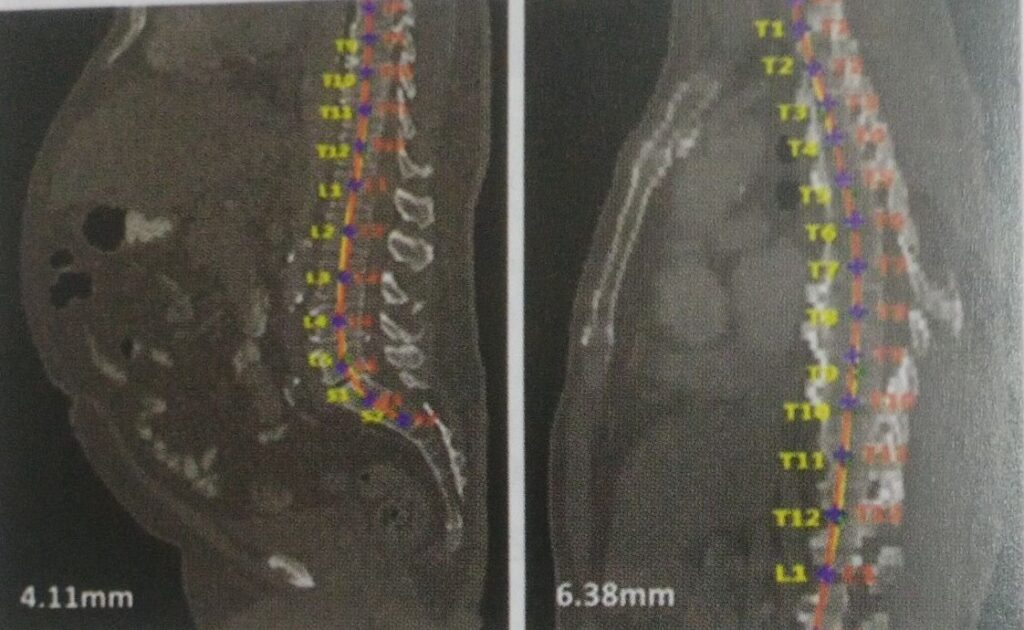Welcome to the Bangalore Spine Specialist Clinic! I’m Dr. Shashidhar B.K., and today, we’ll delve into an important topic that affects many individuals: Spinal Canal Stenosis. This condition can significantly impact your quality of life, but with the right understanding and treatment, you can find relief. Let’s explore what canal stenosis is, its causes, symptoms, and treatment options available at our clinic in Bengaluru, Karnataka.
What is Spinal Canal Stenosis?
Spinal Canal Stenosis is a medical condition characterized by the narrowing of the spinal canal, which houses the spinal cord and nerve roots. This narrowing can lead to compression of the spinal cord and nerves, resulting in various neurological symptoms. It is often referred to interchangeably with spinal stenosis.

Types of Spinal Canal Stenosis
There are two primary types of canal stenosis:
- Congenital or Developmental Stenosis:
- This type occurs when individuals are born with a smaller than normal spinal canal. The canal’s diameter is insufficient to accommodate the spinal cord and nerve roots, leading to potential complications later in life.
- Acquired Stenosis:
- This is the more common form of canal stenosis, typically developing over time due to degenerative changes in the spine. Factors contributing to acquired stenosis include:
- Degeneration of Spinal Structures: The intervertebral discs, vertebral bodies, and facet joints may deteriorate, leading to narrowing.
- Synovitis: Inflammation of the synovial joints in the spine can contribute to the condition.
- Osteophytes: Bone spurs may develop, further narrowing the foramina (the openings where nerves exit the spine) and the spinal canal.
- Herniated Discs: Discs that slip or bulge can exacerbate spinal degeneration and contribute to stenosis.
- This is the more common form of canal stenosis, typically developing over time due to degenerative changes in the spine. Factors contributing to acquired stenosis include:
How Spinal Canal Stenosis Affects You
As the spinal canal narrows, it can place pressure on the neural structures, leading to a range of symptoms. When this pressure increases, it can also affect the vascular system, resulting in ischemic neuritis, which adds to the discomfort.
Symptoms of Spinal Canal Stenosis
Canal stenosis typically manifests after the age of 60 and presents with various symptoms, including:
- Pain: Sudden pain in the lower back, buttocks, thighs, and calves is common. Unlike herniated discs, the pain often radiates to both legs.
- Increased Pain with Activity: Patients often report heightened pain during standing or extensive walking.
- Bladder Issues: As the condition worsens, bladder dysfunction may develop.
- Physical Examination Findings: A flattened natural curve of the lower spine and limited range of motion may be observed during a physical examination.
Diagnosis of Spinal Canal Stenosis
At the Bangalore Spine Specialist Clinic, we utilize advanced diagnostic tools to assess canal stenosis accurately. Our diagnostic process includes:
- Medical History Review: Understanding your symptoms and medical history.
- Physical Examination: Assessing your spine’s alignment, range of motion, and neurological function.
- Imaging Studies: MRI or CT scans can provide detailed images of the spinal canal, helping us identify the degree of stenosis and any underlying issues.
Treatment Options for Spinal Canal Stenosis
The treatment approach for canal stenosis varies based on the severity of the condition and the patient’s overall health. At our clinic, we prioritize conservative, non-surgical treatments whenever possible.
Conservative Treatments
- Physical Therapy: Tailored exercises can help strengthen the muscles supporting your spine, improving flexibility and reducing pain.
- Yoga and Acupuncture: These holistic approaches can alleviate discomfort and enhance overall well-being.
- TENS Therapy: A Transcutaneous Electric Nerve Stimulator (TENS) can provide effective pain relief by delivering electrical impulses to the affected area.
- Epidural Steroid Injections: For acute pain management, we may recommend epidural steroid injections to reduce inflammation and relieve pressure on the nerves.
Surgical Treatments
If conservative treatments do not provide relief, surgical intervention may be necessary. Surgical options include:
- Foraminal Decompression: This microsurgical technique aims to relieve nerve compression while minimizing damage to surrounding tissues.
- More Intensive Solutions: In cases of spinal instability, procedures such as artificial disc replacement or spinal fusion may be recommended.
Why Choose Bangalore Spine Specialist Clinic?
At the Bangalore Spine Specialist Clinic, we are committed to providing personalized care tailored to your unique needs. Our team, led by Dr. Shashidhar B.K., has extensive experience in diagnosing and treating spinal conditions, including canal stenosis.
Our Approach to Care
- Comprehensive Assessment: We take the time to understand your symptoms and medical history, ensuring an accurate diagnosis.
- Patient-Centered Care: Your comfort and satisfaction are our top priorities. We work closely with you to develop a treatment plan that aligns with your lifestyle and goals.
- Advanced Techniques: We stay updated with the latest advancements in spine surgery and treatment methods to provide you with the best possible outcomes.
Conclusion
Spinal Canal stenosis can significantly impact your quality of life, but with the right understanding and treatment, relief is achievable. If you are experiencing symptoms associated with canal stenosis, don’t hesitate to reach out for help.
Contact Us
At the Bangalore Spine Specialist Clinic,located in Bengaluru, Karnataka, India- we are here to guide you on your journey to a pain-free life. To schedule an appointment or for more information, please call us at +919448311068 or visit our website. Remember, there’s no better time than today to take the first step toward a healthier spine!
